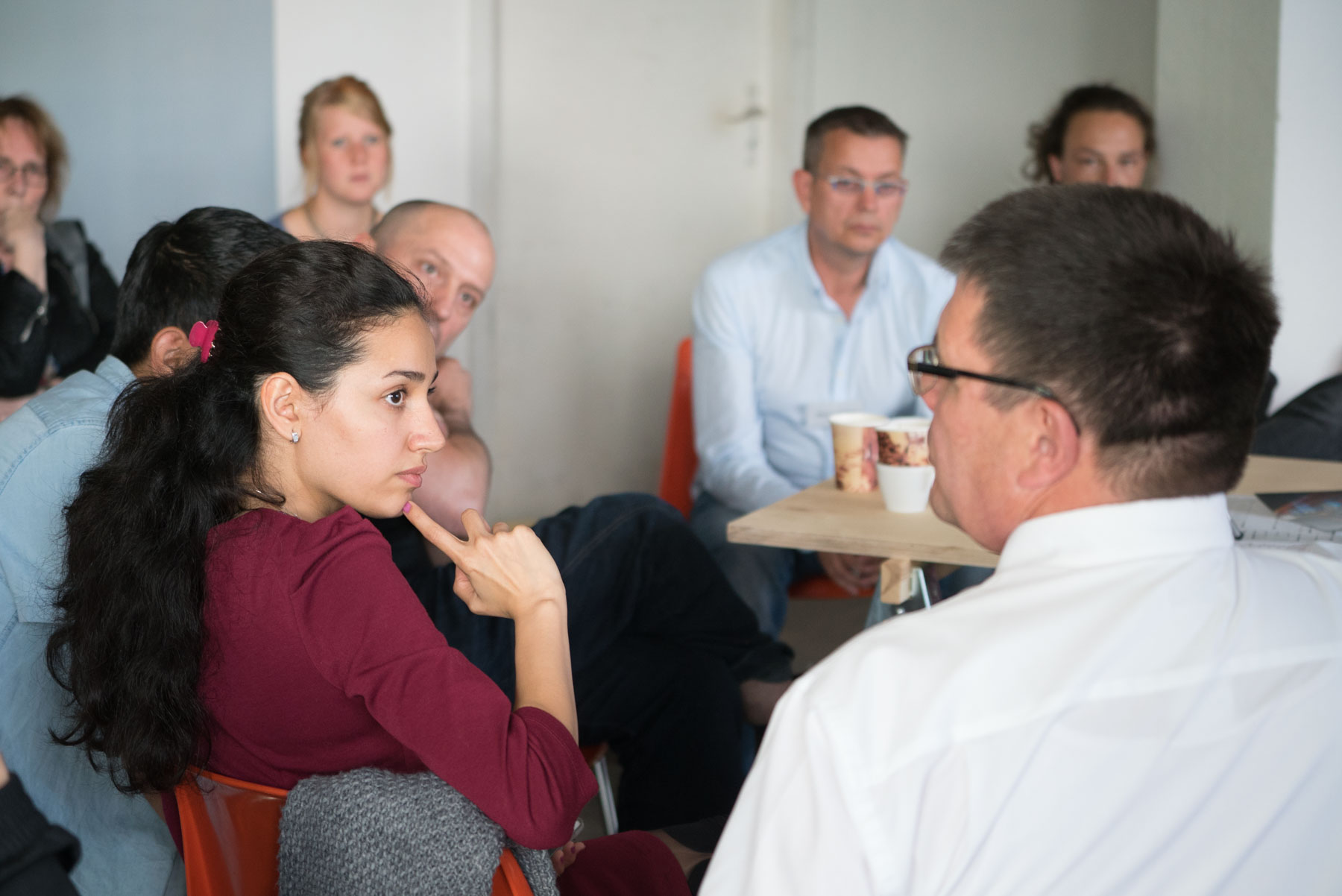More [than] living space!
Conference on the 6th of July 2016
More [than] living space!
Building is teamwork! Building works best if it takes place as a common act. On a building site everyone must rely on each other. The one who builds, does changes. And the one who catches that spirit of change will become an active member in the society. These are thoughts that every participant of the one-day conference around the Oberhausen central station could probably agree upon: Following the slogan ”More than living space! – Building as an integration process of the socially disadvantaged people” gathered together around 100 architects, artists, urban planners and many others, invited by StadtBauKultur NRW and kitev, to discuss the future of housing and living.
In the past months something has become dramatically obvious: Germany has a problem. The issue of social housing has been far too long disregarded. In a time where the German economy and population are growing, but wage differentials and the constant residence permit status getting bigger in the same time. The need for affordable living space gets more and more in the center. And in fact cities and communities are reacting to it by supporting several housing programs.
In Oberhausen the question of How popped up. Is it enough to just provide living space or should living be a tool of self determination and creation of social processing? Five projects from Germany and Austria gave good examples of collaborative building projects which involve exchange, participation and long-run shift of social structures. Like integrative living projects including the contribution of students and homeless people in vienna or a cultural living-, gardening- and housingproject from Berlin, a planned meeting place made by children in the socially disadvandaged hood Garath in Düsseldorf, the creation of lively villages in empty industrial halls or even the vision of a completely self made city: here realized as envisioned future scenarios created possibilities of a society to come.
Workshops in the afternoon put an emphasis on the practical – and kitev even on a locally specific case. Under the title ”Hands on, Co-Create! We are reparing a highrise. Common building processes in practice” a labour place of ideas opened up its doors in a since short while reused and for a longs time empty store room on the foot of the highrise at Friedrich-Karl-Strasse. What function could this house gain for the city of Oberhausen as its charisma may reach potentially the whole city? How is it possible for this place to be a living organism, in which a heterogenous community is moving and developing together modells of a common living?

The workshop has set the public starting point of a long term project in the highrise, which has been started by kitev in cooperation with the owner Vonovia just some short time ago. In the store room already a workshop place is under construction. And Christoph Stark and Agnieszka Wnuczak have already begun to renovate one of the appartments, co-working with the young Mohammed Sayed Hashemi, as he’s gonna move in soon. As the two heads of kitev will as well: ”For us it’s crucial to become part of the structure here. We aim to build a modell for longterm changes in housing policies and so the ways in which cities function. The highrise works as a example situation – not just for the city center of Oberhausen, but for urban processes in the whole Ruhr area. The development of common usage and employment modells in the highrise may spread to its urban environment and build a workshop for future concepts of a strong city center which is not based anymore on a strong retail trade. This could work as a best-practice for a broader surrounding. So, the longterm project sees itself also in the tradition of historically active neighbourhoods on Oberhausen. The city has always been a flagship, talking about cooperative civic structures”, so says Christoph Stark.
With Uwe Weinand (Jobcenter Oberhausen), the theatremaker and founder of Freie Uni Oberhausen Stefan Schröer and the Finnish researcher Kaisa Schmidt-Thomé (Demos Helsinki) as invited guests and the program dramaturge Johanna-Yasirra Kluhs (Interkultur Ruhr) as moderator, the parttakers of the workshop created scenarios of the house, which revealed new realities. All propositions had one belief in common: we have to do it together. Visions have to be developed in strong dialogue with actual and future inhabitants. As many people as possible should be actively involved in planning and renovation activities. And so it might be possible to create a new narrative and history of the building and thus the city center. As the participants were agreeing on this as well: a purposeful changed gaze on the situation as it is, is already creating a different reality. And so the participant Ramash Imanifardazar was proposing to start with a big neon sign on the rooftop, saying as follows: Oberhausen needs you. And we are sure, she was not just talking about the building itself.
pictures by Rene Jankowski and Sebastian Becker











































































